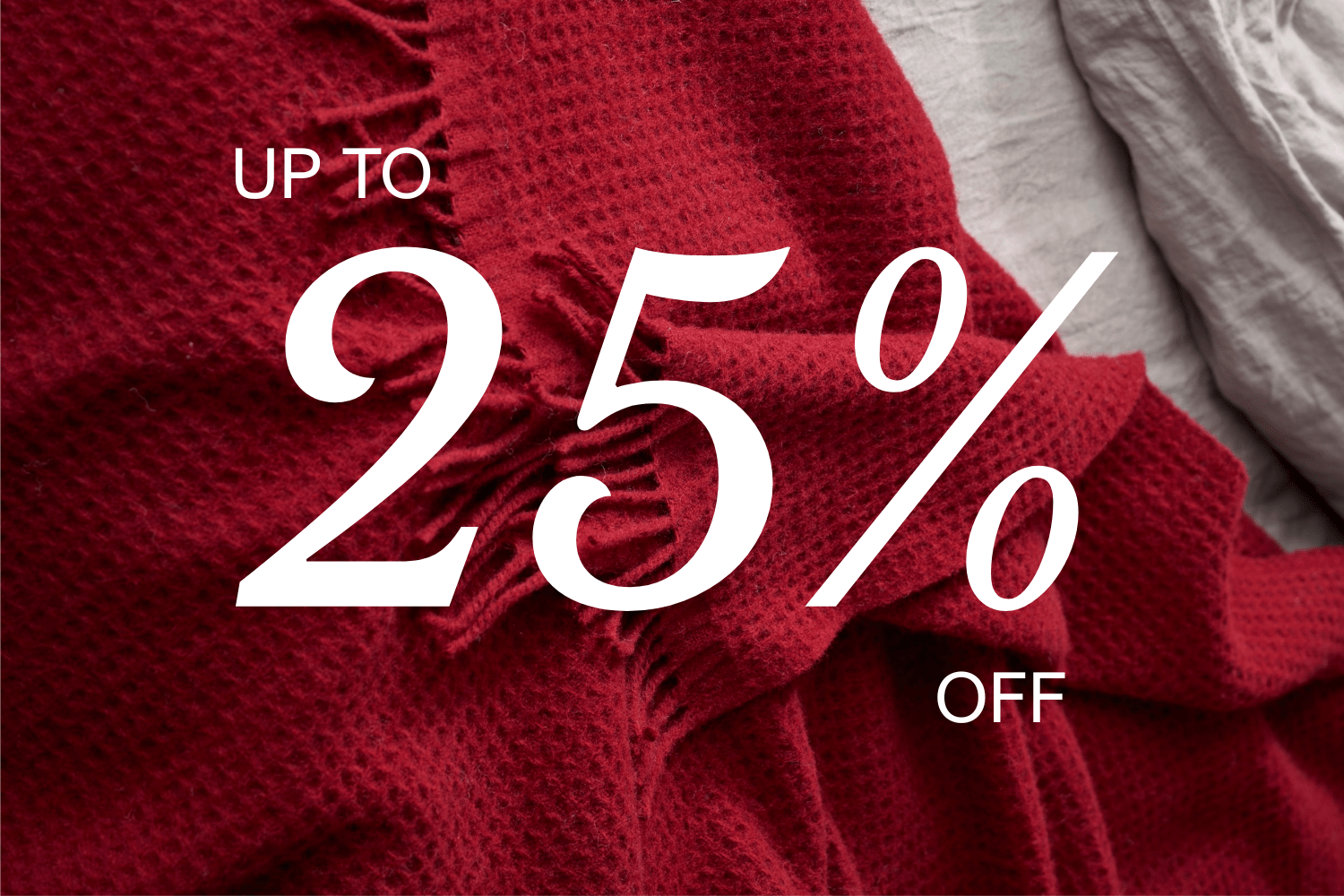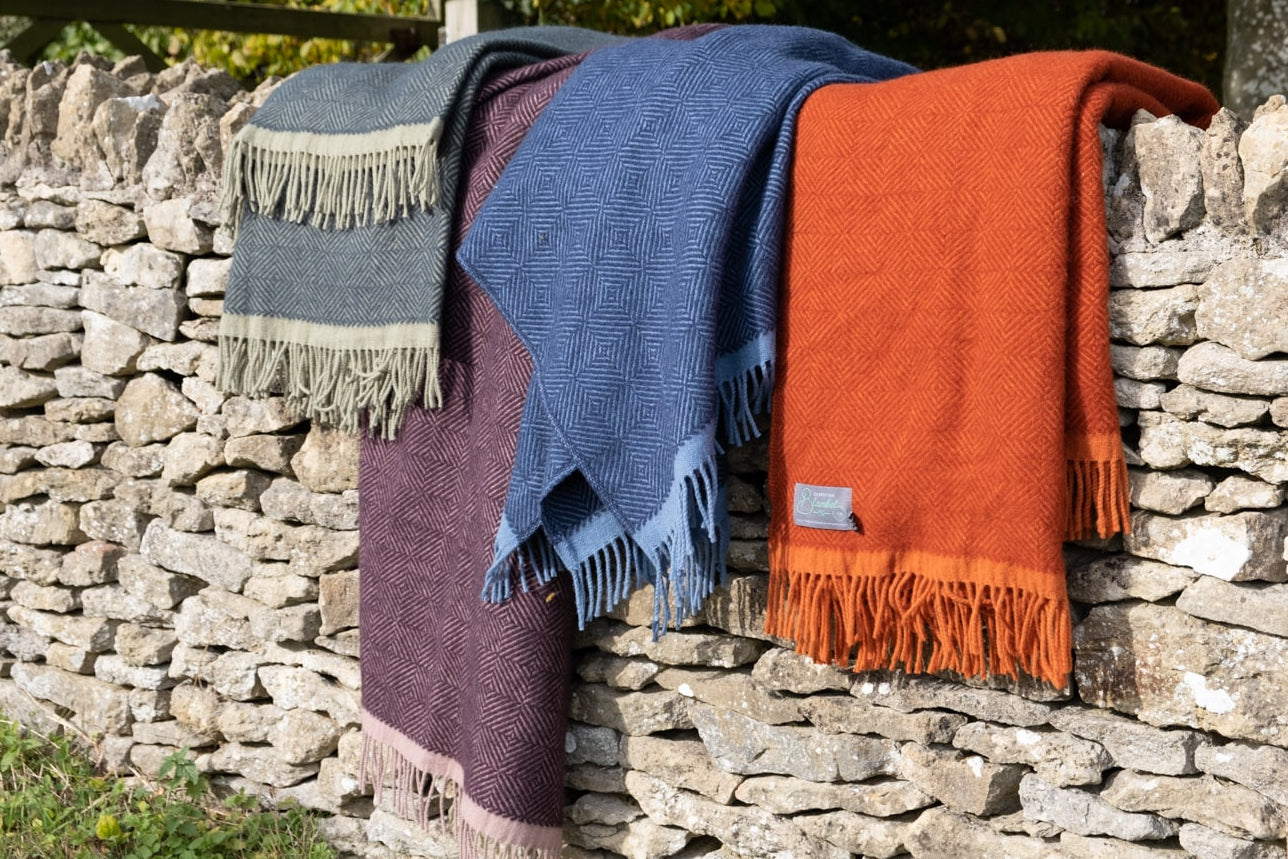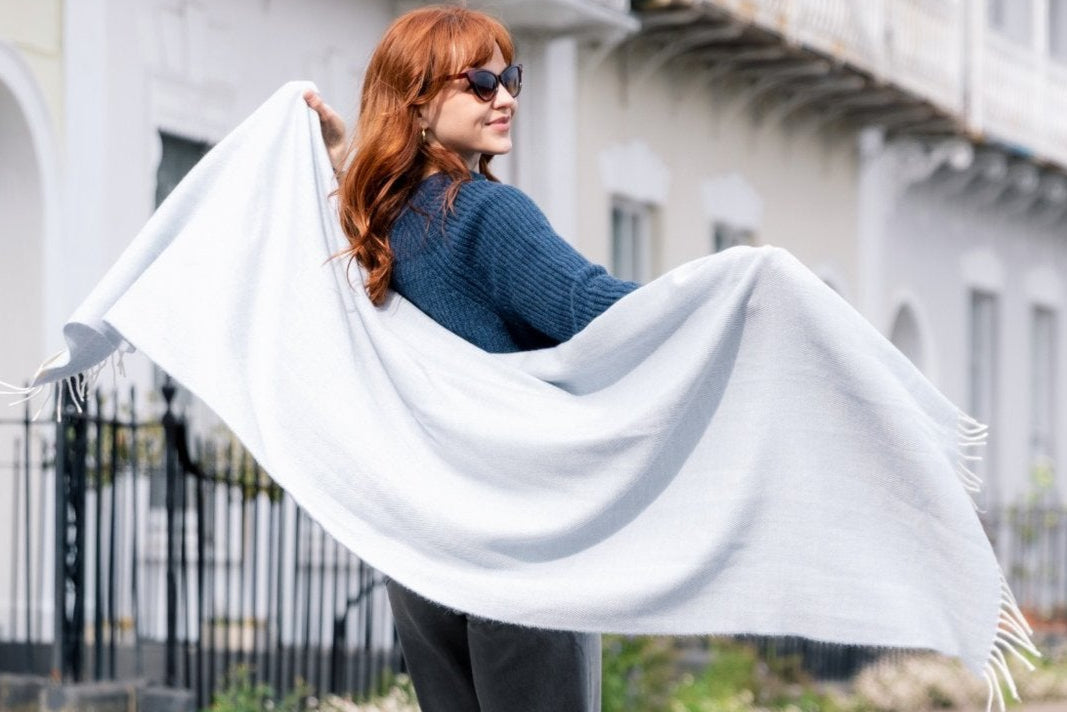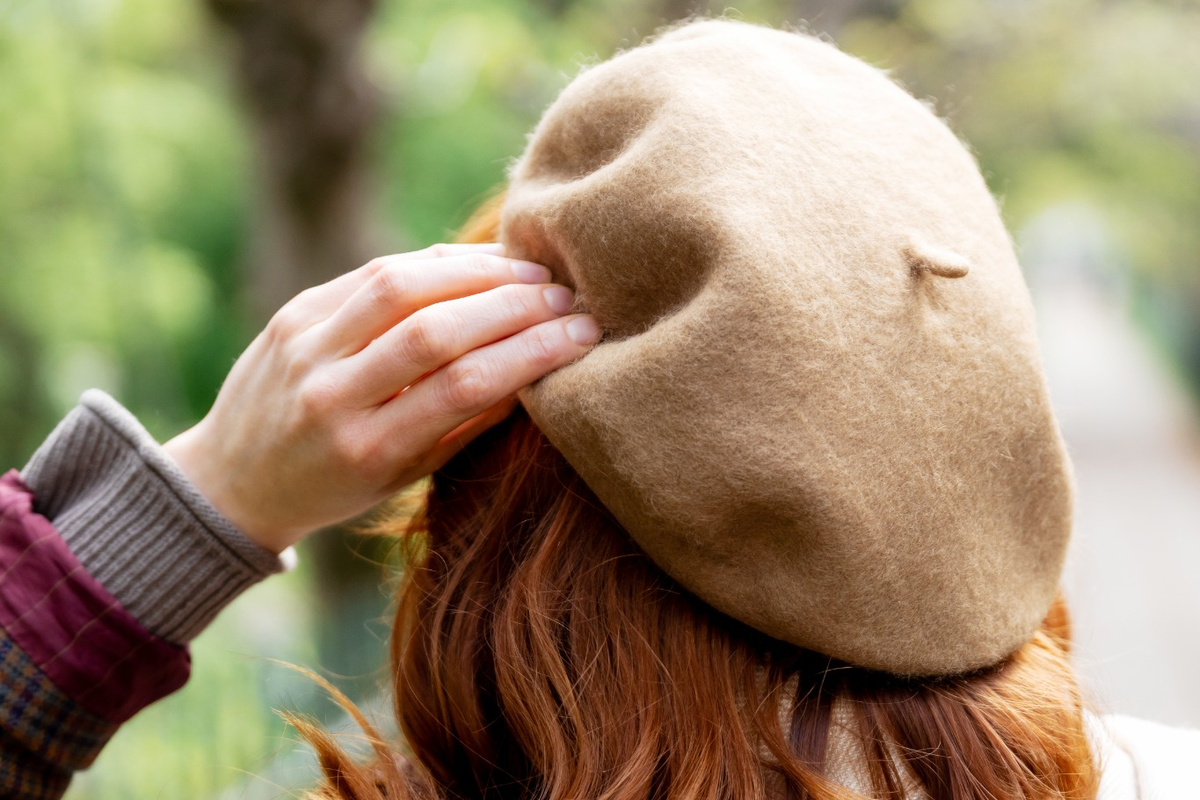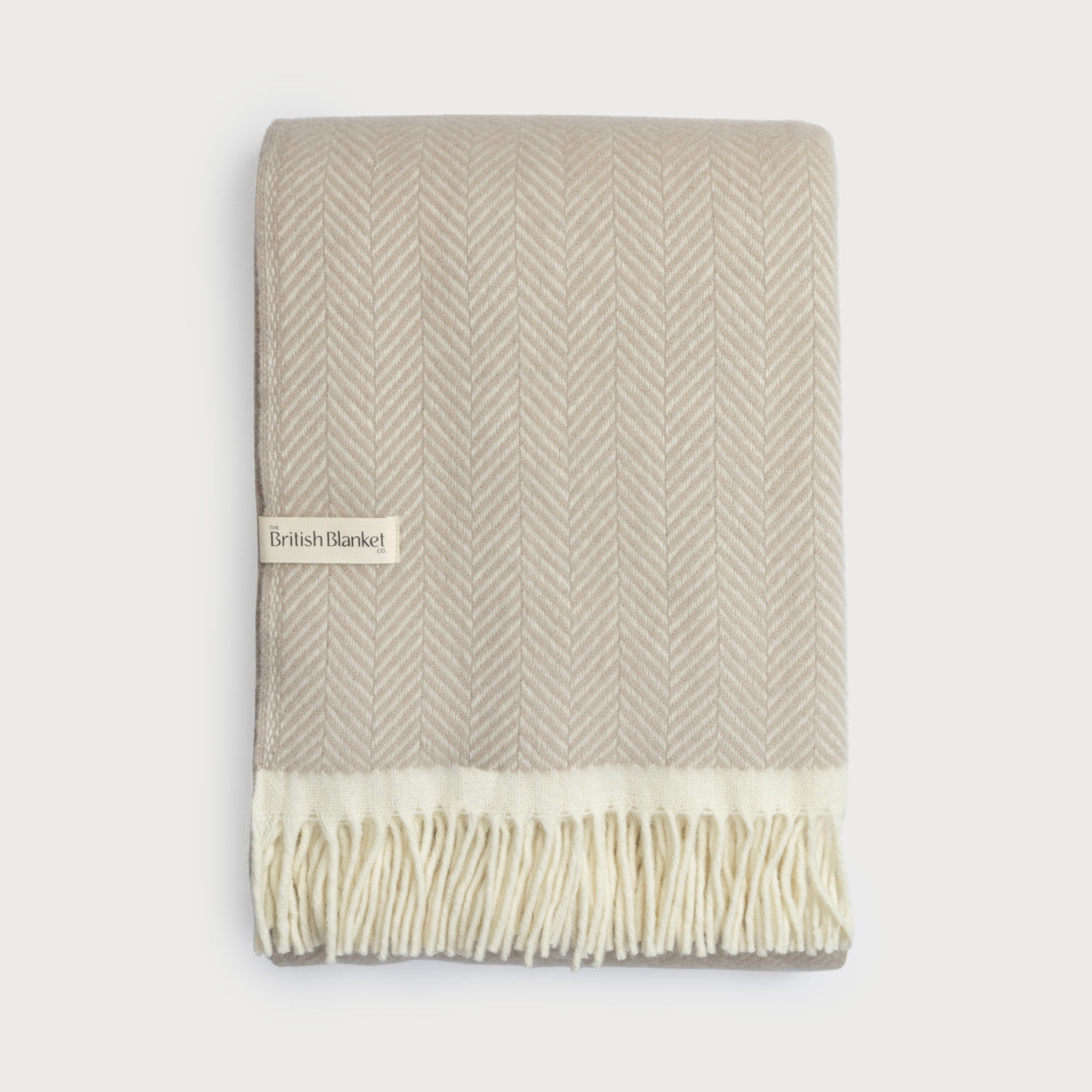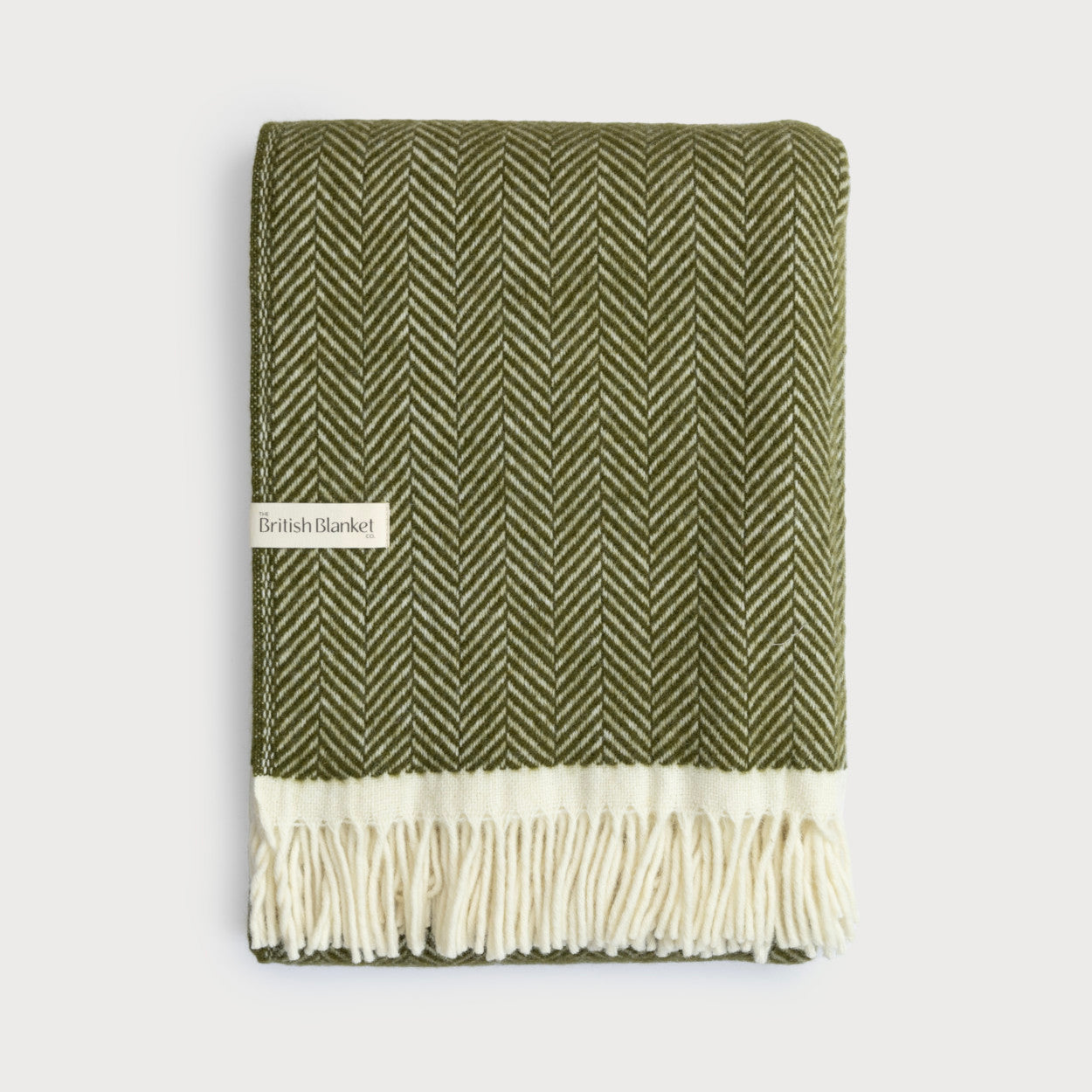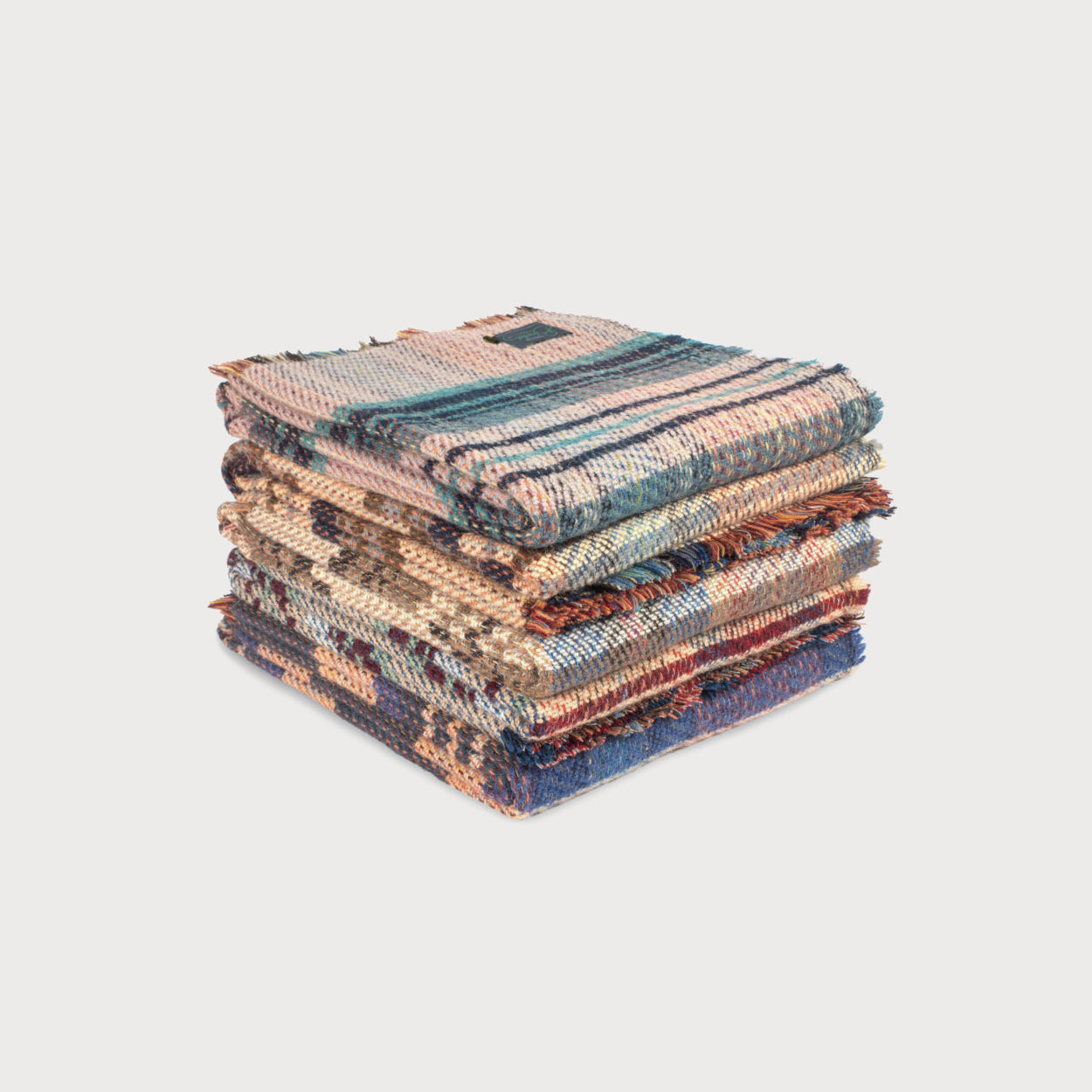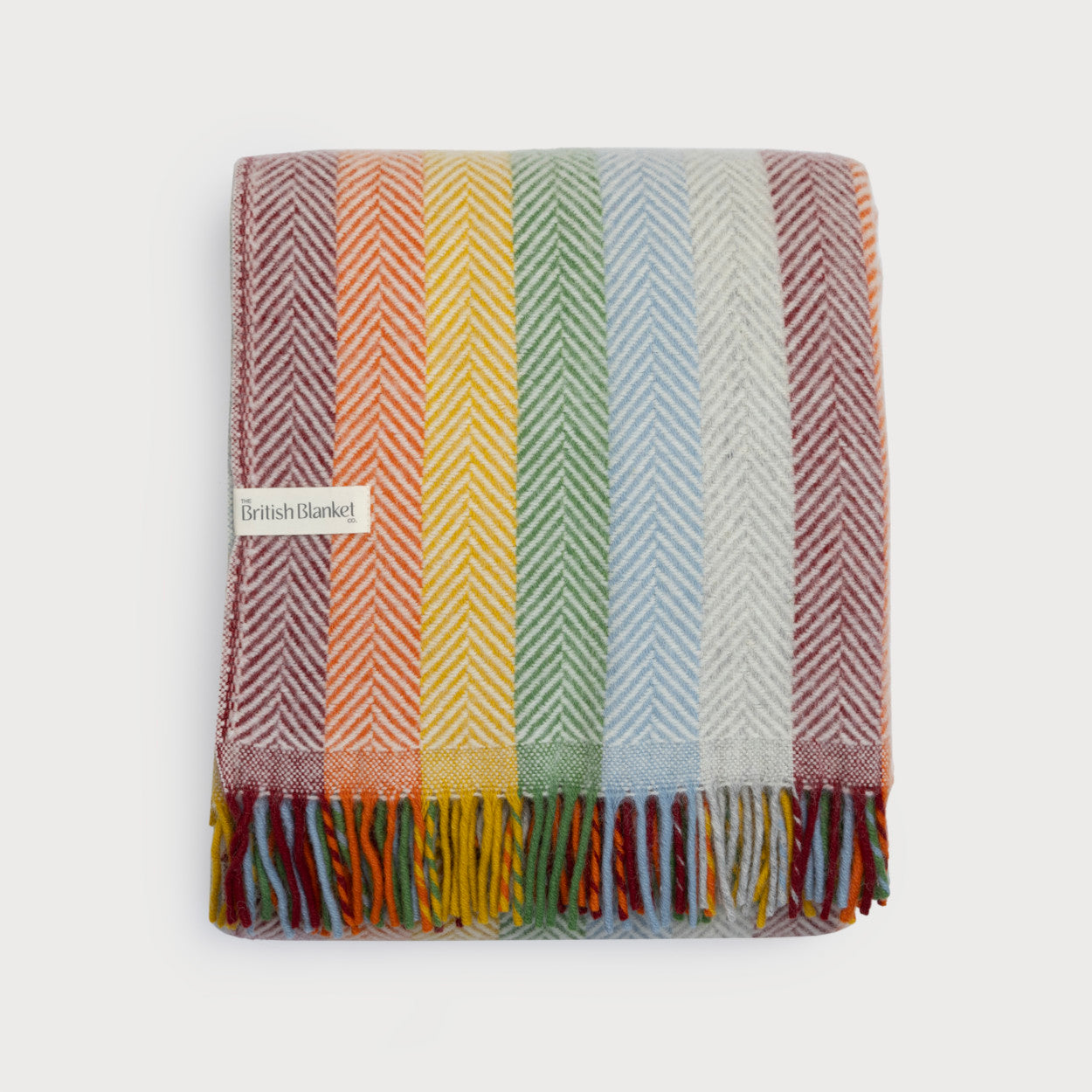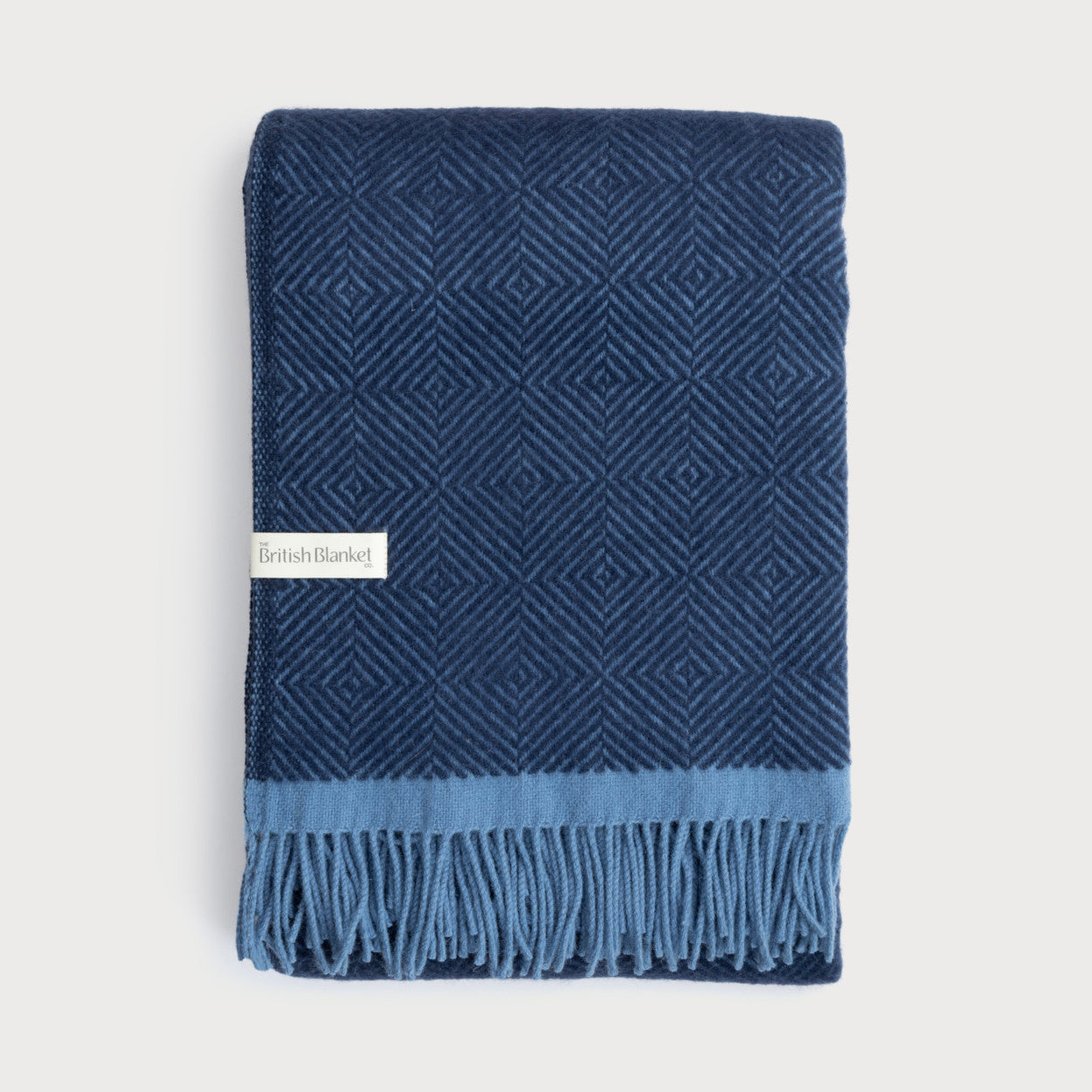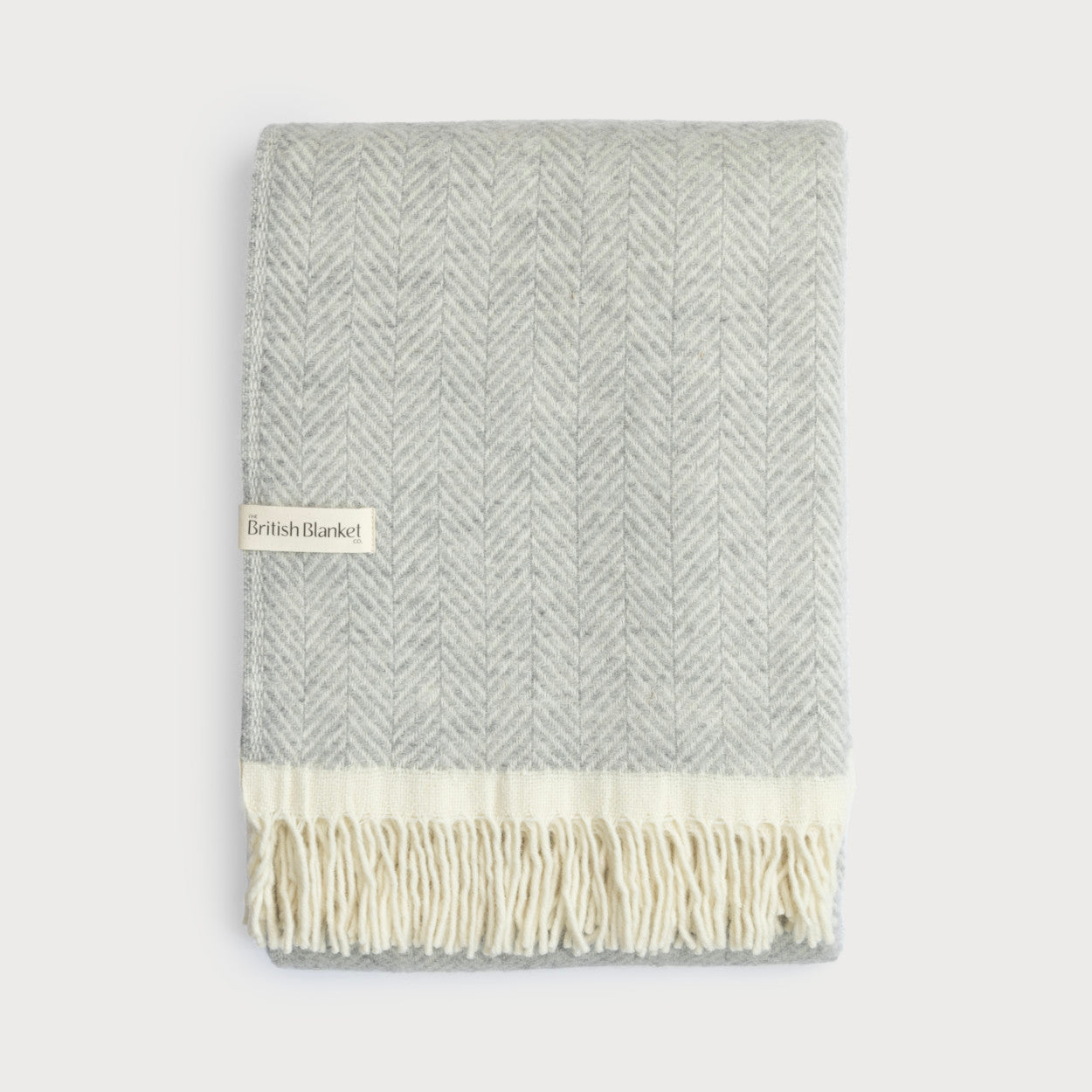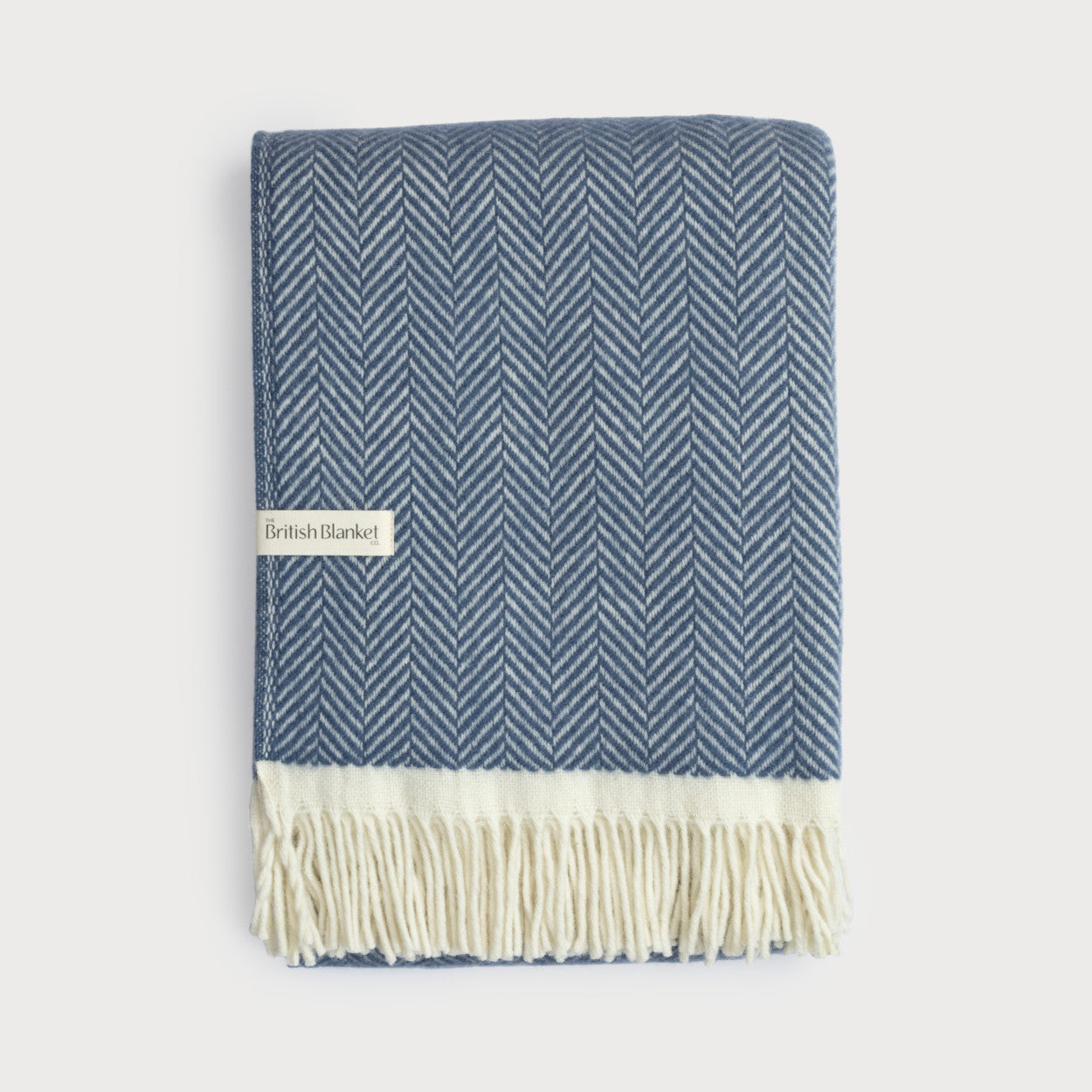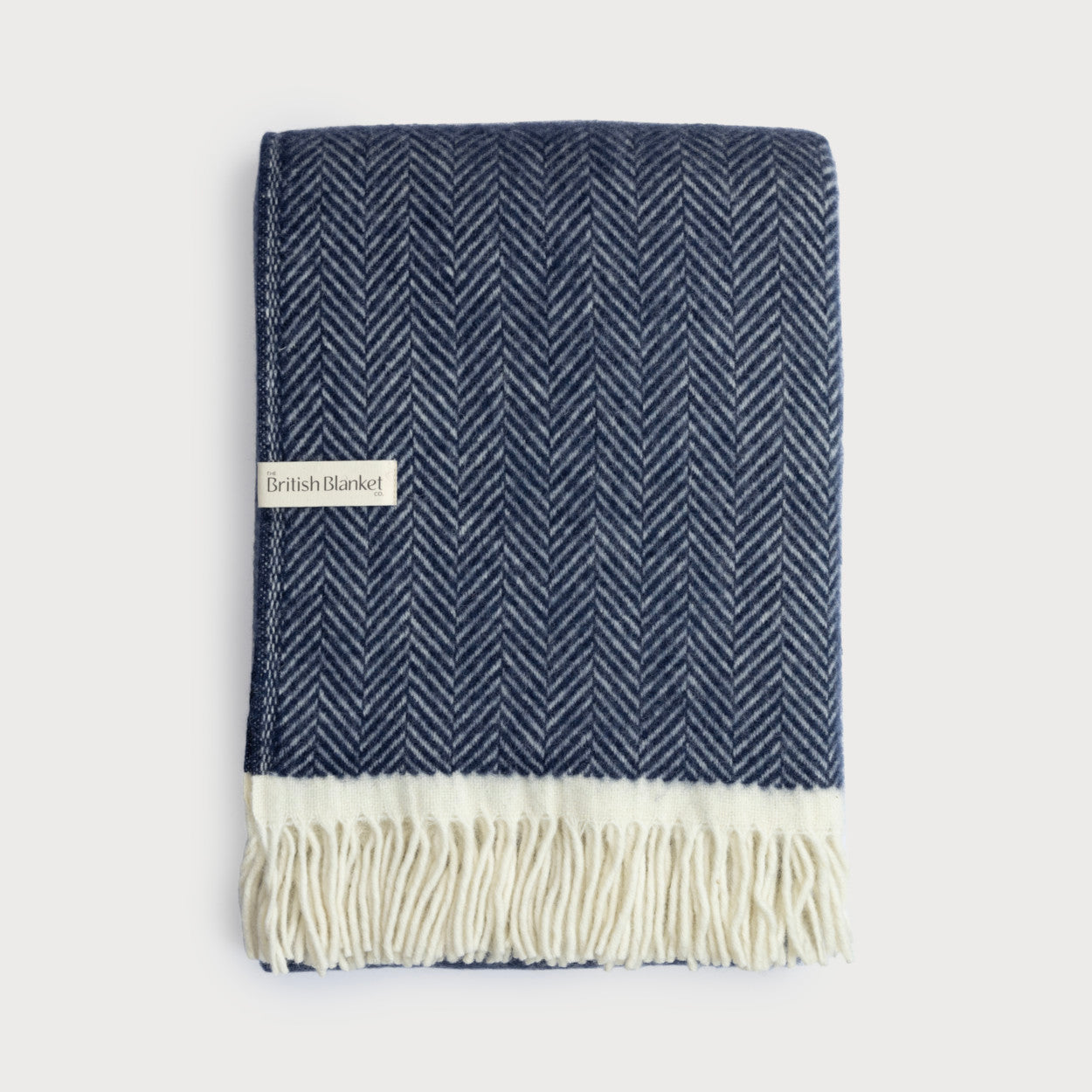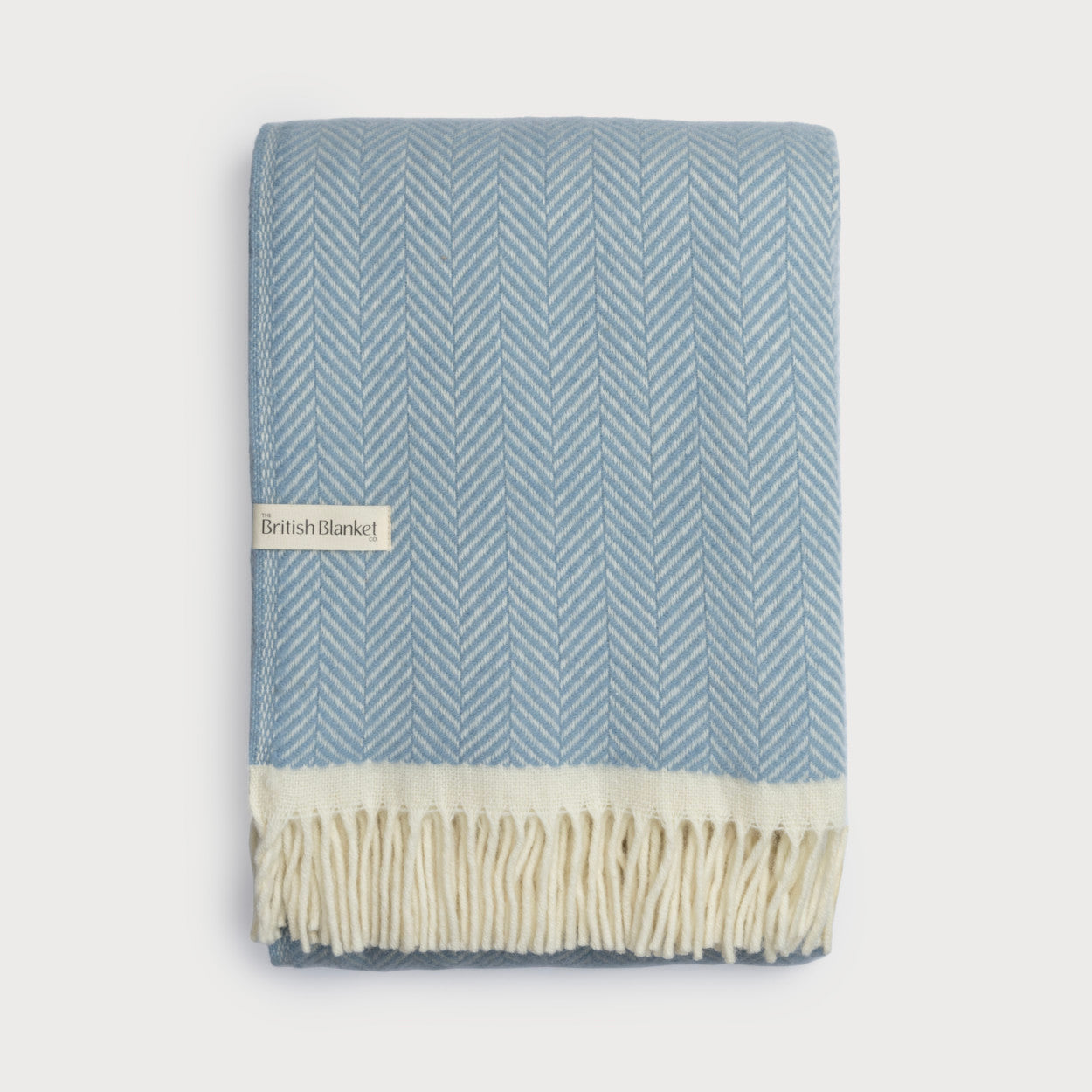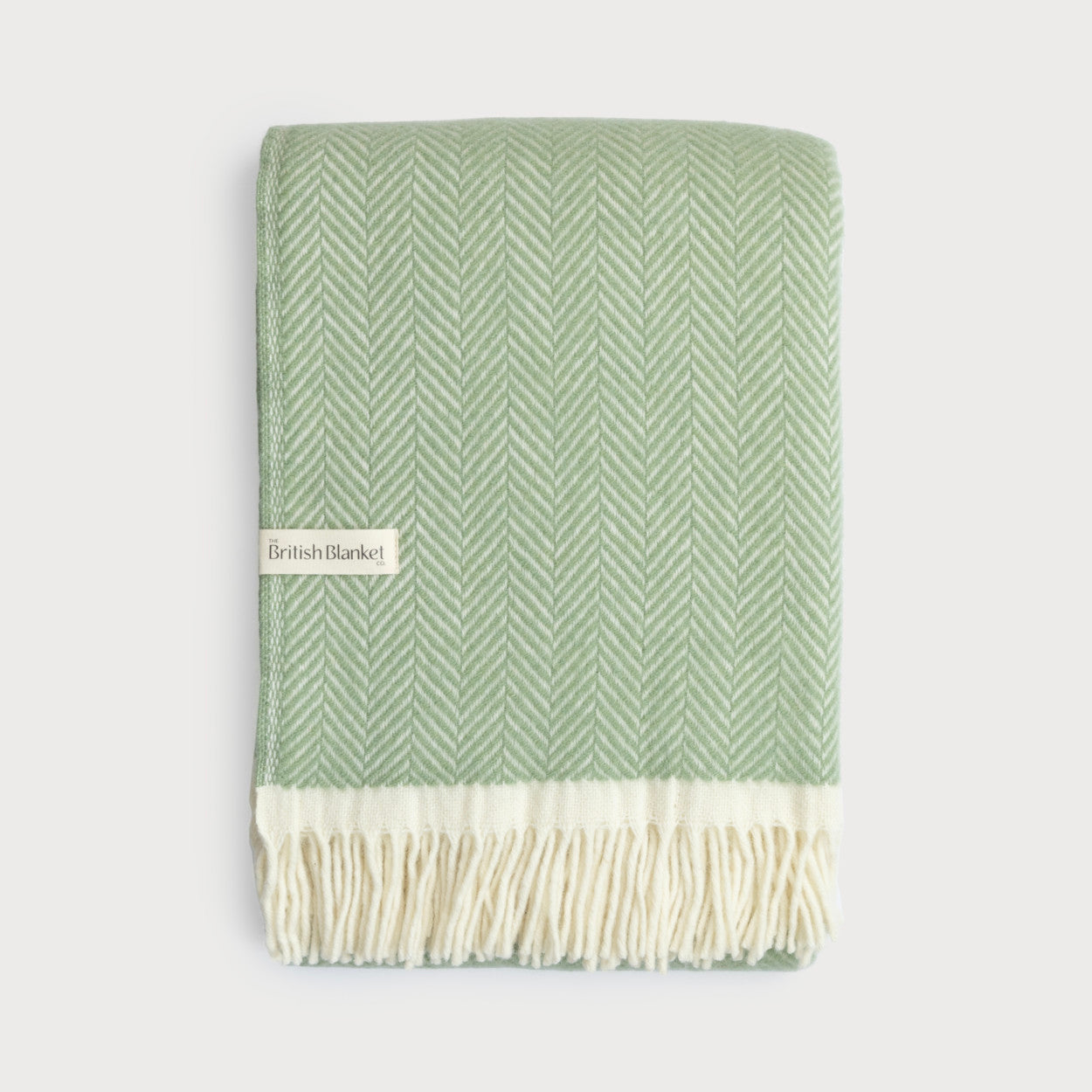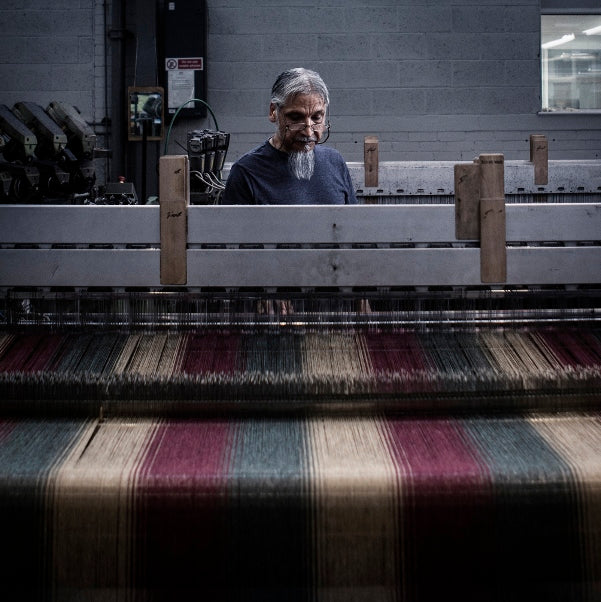
The British Blanket Company is proud to weave our throws at traditional woollen mills in the British Isles. Come along with us on a trip to Yorkshire to see behind the scenes at one of England’s oldest mills, and the place where our merino lambswool blankets are made.

Where is the mill located?
We’re based in Guiseley, near Leeds in Yorkshire.
Give us a potted history…
The company was established in 1837 by Abraham Moon, who sold his fine tweed cloth at Leeds Market. Our first mill building was completed in 1868, on the same Netherfield Road spot we occupy to this day. Over a short time, the company went from strength-to-strength and by the early 1890s was exporting to the Far East and America. Despite the rise of synthetic fabrics and competition from abroad, which shut down many UK mills, ours survived and thrives to this day. We weave cloth for fashion and upholstery, as well as blankets and throws.

How does your heritage influence the throws made for The British Blanket Company?
Whilst our designs are trend led, we also use our pattern archives for inspiration. The archives date back to the early 1900s and we can re-make any fabric from the original hand-written notes to near perfect accuracy. For example, The British Blanket Company's new Parquet throw design is based on an historic weave.
You have one of the last remaining “vertical mills” in Great Britain. What is a vertical mill?
Vertical Mills were a Victorian creation, when woollen mills would stand several stories tall and each process would have its own floor. Whilst our mill today is mostly single storey, we still complete all processes under one roof, from taking in raw wool to the completed throw. Dyeing, blending, carding, spinning, warping, weaving, and finishing all happens here.
What are people most surprised by when they visit the mill?
The scale! Across our fashion, interiors and upholstery fabrics we weave 2.2 million metres per year on 42 different looms. Visitors can also be surprised by the processes – areas such as carding and spinning have remained relatively true to tradition, although the machinery has been modernised of course.

Tell us more about colour blending…
Our throws use mélange yarns, which is French for ‘to mix’. We begin with 500 different dyed wools and blend between two and seven of them to create a component shade, much like mixing paint. This process is called 'carding' and gives our finished throws unrivalled depth of colour. If a check design incorporates five different colours, and each of those colours has five different dyed wools in the blend, the human eye subconsciously picks up 25 shades in the throw itself!
Are there any surprising colours in your blends?
Khaki green is always a favourite to see go through carding. Our khaki has seven different shades in the blend, but only one of them is green! The other colours in the khaki yarn are white, yellow, blue, orange, and two different shades of brown.

What is your process for devising new blanket designs?
Our design development process for a new range can take between 3-6 months from initial mood-boarding to final sampling. About half of our cloth is for the fashion industry, so we use our analysis of fashion trends to inform a wider view of the design landscape.


What trends can we look forward to?
We’re working hard creating more geometric weaves than ever before, with less traditional check patterns in our latest collections. Upcoming colour stories include Monochrome, Blackcurrant, and a bold mix of shades we’ve christened ‘Sunshine’… think beach house!
What does ‘Great British Design’ mean to you?
It means everything to us! We work tirelessly throughout the year to introduce new and exciting design and colour combinations and we’re only able to do that thanks to the efforts of all of our staff behind the scenes here in Guiseley. We call it our ‘British Backbone’.


Photographs by Mike Burton courtesy of Abraham Moon
Come along with us and we’ll tell you what it’s like to step inside a centuries-old woollen mill and guide you through the weaving process, from the arrival of the raw fleece to the finished wool blanket!
